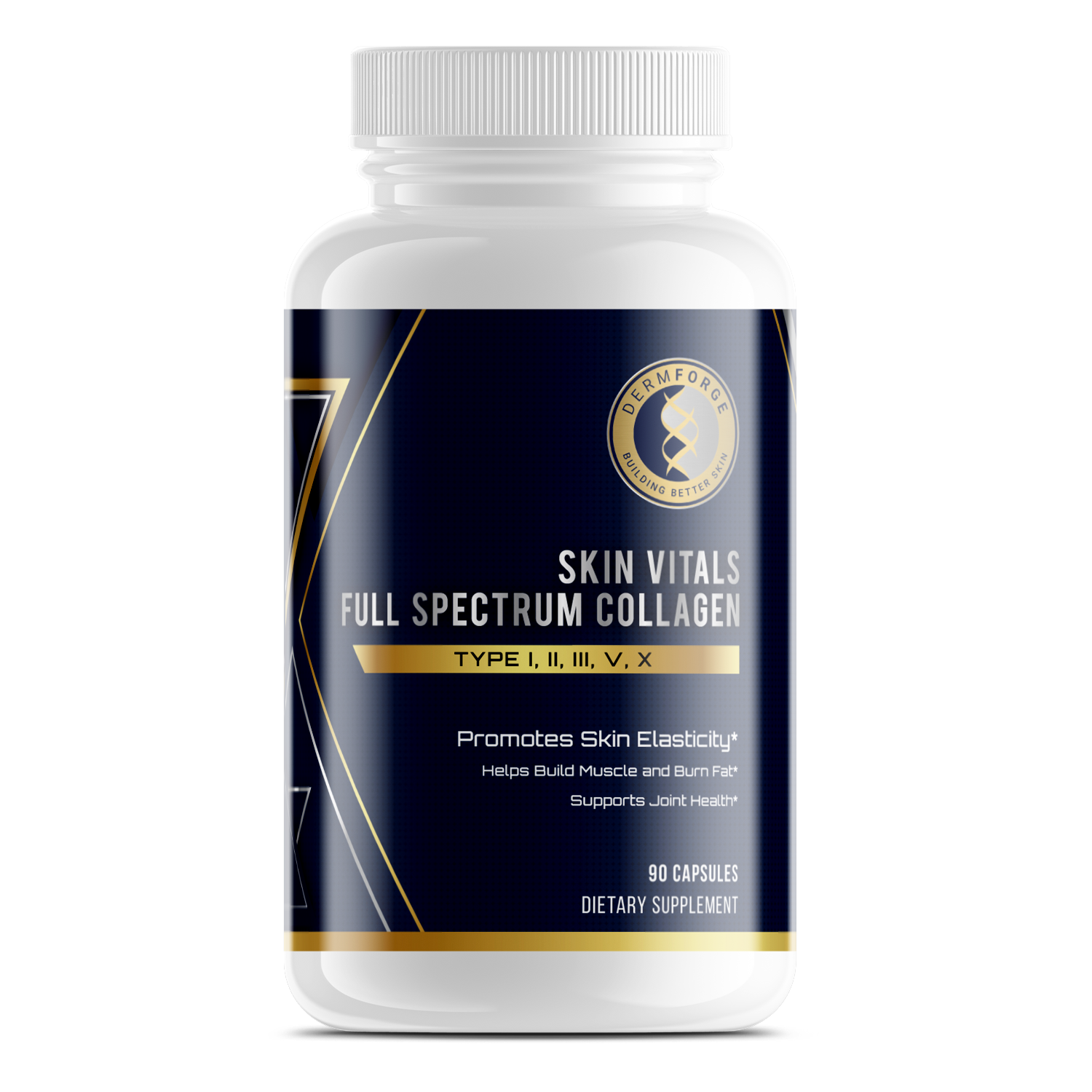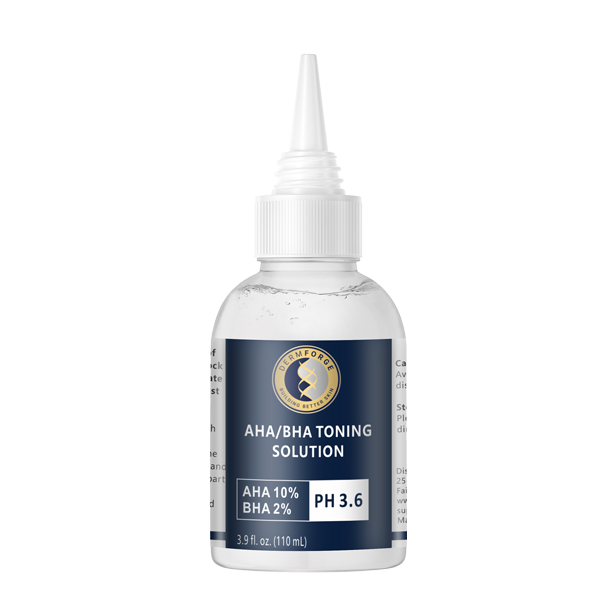Peptides have become essential in modern skincare routines due to their remarkable ability to enhance skin health. These short chains of amino acids serve as building blocks for proteins like collagen and elastin, which are vital for maintaining skin's firmness and elasticity. Incorporating peptides into your skincare regimen can lead to improved hydration, reduced appearance of fine lines, and a more youthful complexion.
Various types of peptides offer specific benefits. Signal peptides stimulate collagen production, promoting skin strength. Carrier peptides deliver essential elements that aid in skin healing and regeneration. Additionally, neurotransmitter-inhibiting peptides can relax facial muscles, helping to smooth out wrinkles. By understanding these functions, you can select products that align with your skincare goals.
Integrating peptides into your daily routine is straightforward. Look for serums or creams containing peptide complexes and apply them after cleansing and before moisturizing. Consistency is key; regular use can yield noticeable improvements in skin texture and appearance. Moreover, peptides are generally well-tolerated, making them suitable for various skin types, including sensitive skin.
Incorporating peptides in skincare routines offers a multifaceted approach to achieving healthier, more resilient skin. By selecting products with appropriate peptide formulations and using them consistently, you can address multiple skin concerns effectively. Always consider your individual skin needs and consult with skincare professionals when introducing new ingredients to your regimen.
What Are Peptides and How Do They Work in Skincare?
Peptides are short chains of amino acids, the building blocks of proteins like collagen and elastin. Incorporating peptides into your skincare routine can significantly enhance your skin's health and appearance.
When applied topically, peptides penetrate the skin and stimulate the production of collagen and elastin. This stimulation leads to improved skin firmness and elasticity, effectively reducing the appearance of fine lines and wrinkles. Additionally, certain peptides possess anti-inflammatory properties, helping to soothe irritated skin and promote a more even skin tone. Some peptides also act as antimicrobial agents, targeting bacteria that cause acne, thereby improving skin clarity.
Integrating peptides into your skincare routine is straightforward. Look for products like serums, moisturizers, or eye creams that list peptides among their key ingredients. Apply these products to clean, dry skin, typically in the morning and evening, to maximize their benefits. Consistency is essential; over time, you'll likely notice improvements in skin texture, firmness, and overall appearance.
Incorporating peptides in skincare routines offers multiple benefits, including enhanced hydration, improved skin barrier function, and a reduction in signs of aging. By understanding how peptides work and consistently using products containing them, you can achieve healthier, more youthful-looking skin.
The Benefits of Using Peptides for Anti-Aging
Peptides are short chains of amino acids, the building blocks of proteins. In skincare, they serve as messengers, instructing your skin cells to perform specific functions. Incorporating peptides in skincare routines can lead to various skin benefits.
One significant advantage of peptides is their ability to stimulate collagen production. Collagen is a protein that provides structure and firmness to your skin. As you age, collagen levels naturally decline, leading to wrinkles and sagging. By promoting collagen synthesis, peptides help maintain skin elasticity and reduce the appearance of fine lines and wrinkles.
Additionally, certain peptides possess anti-inflammatory properties. They can soothe irritated skin, reduce redness, and promote an even skin tone. Some peptides also have antimicrobial effects, assisting in the treatment of acne by targeting acne-causing bacteria.
Incorporating peptides into your skincare routine is straightforward. Look for products containing peptides, such as serums or moisturizers, and apply them as directed. Consistency is key to experiencing the benefits, so regular use over time is recommended.
Incorporating peptides in skincare routines offers multiple benefits, including enhanced collagen production, improved skin elasticity, and reduced signs of aging. These advantages contribute to healthier, more youthful-looking skin.
How Peptides Help with Skin Hydration and Moisture Retention
Peptides are powerful components that play a crucial role in improving skin hydration and moisture retention. When applied topically, peptides help reinforce the skin’s natural barrier function. This is important because the skin's barrier is responsible for preventing water loss and protecting against environmental stressors. By strengthening this barrier, peptides help retain moisture, keeping your skin hydrated and plump.
Additionally, certain peptides, such as those that boost hyaluronic acid production, can significantly improve the skin's ability to hold onto moisture. Hyaluronic acid is a natural humectant, meaning it draws moisture into the skin. When peptides in skincare routines work to stimulate the production of hyaluronic acid, they enhance the skin's ability to hydrate itself from within.
Peptides also help to soothe and calm the skin. They reduce inflammation and support the regeneration of the skin’s outer layers. By doing so, they create a healthier environment for moisture retention. Furthermore, peptides are known for their ability to encourage collagen production, which plays a role in maintaining skin structure and elasticity, further supporting hydration.
For best results, make peptides a regular part of your skincare regimen. Apply peptide-based serums or moisturizers after cleansing to maximize absorption. Over time, you'll notice improvements in skin texture, hydration, and overall skin health. By incorporating peptides in your skincare routines, you can achieve smoother, more hydrated skin with lasting moisture retention.
Peptides for Sensitive Skin: Why They’re Gentle and Effective
Peptides are short chains of amino acids that naturally occur in your skin. Incorporating peptides in skincare routines can offer significant benefits, especially for sensitive skin. They play a vital role in enhancing your skin's barrier function, which is essential for maintaining hydration and retaining moisture.
When applied topically, peptides penetrate the skin's surface and interact with skin cells through multiple mechanisms. This interaction stimulates collagen production, improving skin firmness and elasticity. Moreover, certain peptides possess anti-inflammatory properties, reducing irritation and redness, which is particularly beneficial for sensitive skin types.
By strengthening the skin barrier, peptides help prevent moisture loss, keeping your skin hydrated. This enhanced hydration leads to a healthier complexion and can alleviate dryness and discomfort associated with sensitive skin. Therefore, incorporating peptides in skincare routines not only supports the structural integrity of your skin but also addresses specific concerns related to sensitivity and moisture retention.
Incorporating peptides into your daily skincare regimen can be straightforward. Look for products containing peptides and apply them consistently as directed. This consistent application can lead to noticeable improvements in skin hydration and overall health. However, it's essential to introduce new products gradually and monitor your skin's response, especially if you have sensitive skin.
Different Types of Peptides and Their Specific Functions
Peptides are short chains of amino acids that serve as fundamental building blocks of proteins like collagen, elastin, and keratin. Incorporating peptides in skincare routines can significantly enhance skin health by promoting various beneficial effects.
Signal peptides play a pivotal role in stimulating collagen and elastin production. This stimulation leads to improved skin firmness and elasticity, effectively reducing the appearance of fine lines and wrinkles. Carrier peptides, on the other hand, deliver essential minerals such as copper and magnesium to the skin. These minerals aid in collagen synthesis and support wound healing, contributing to a more youthful complexion.
Enzyme-inhibitor peptides function by slowing down the breakdown of collagen and elastin, thereby preserving skin structure and firmness. Additionally, neurotransmitter-inhibiting peptides help relax facial muscles, which can soften expression lines and wrinkles.
By understanding these distinct types of peptides and their specific functions, you can select skincare products that align with your individual needs, enhancing the overall effectiveness of your skincare regimen.
How to Incorporate Peptides into Your Skincare Routine
Integrating peptides into your skincare routine can significantly enhance your skin's health and appearance. Peptides are short chains of amino acids that serve as building blocks for proteins like collagen and elastin, essential for maintaining skin's firmness and elasticity. When included in skincare products, peptides act as messengers, signaling your skin to produce these vital proteins, thereby improving skin texture and reducing the appearance of fine lines and wrinkles.
To effectively incorporate peptides into your daily regimen, consider the following steps:
1. Choose Appropriate Products:
Opt for serums or moisturizers containing peptides, as these formulations remain on your skin longer, allowing for better absorption and efficacy. Products like serums are lightweight and penetrate deeply, making them ideal for delivering peptides effectively.
2. Application Order:
After cleansing and toning your skin, apply peptide-rich serums. Follow with a moisturizer to lock in hydration and enhance the peptides' benefits. This layering technique ensures that the peptides reach deeper skin layers, maximizing their effectiveness.
3. Consistency is Key:
Regular and consistent use of peptide-containing products yields the best results. Incorporate them into your routine both morning and night to support continuous skin repair and rejuvenation.
4. Combine with Complementary Ingredients:
Peptides work well with other skincare ingredients like hyaluronic acid and niacinamide. These combinations can enhance hydration and soothe the skin, contributing to a healthier complexion.
5. Monitor Your Skin's Response:
While peptides are generally suitable for all skin types, it's important to observe how your skin reacts. If you experience irritation, consider reducing the frequency of application or consulting a dermatologist.
By thoughtfully integrating peptides into your skincare routine, you can harness their numerous benefits, leading to firmer, smoother, and more youthful-looking skin.
Conclusion
Peptides in skincare routines offer a wide range of benefits, from boosting collagen production to improving hydration. As you introduce peptides into your skincare regimen, you’ll notice improvements in skin texture, firmness, and overall health. Therefore, understanding how peptides work and selecting the right products is essential to maximizing their potential.
Additionally, peptides can address various skin concerns, such as fine lines, wrinkles, and dryness. By strengthening the skin’s barrier function, they help maintain moisture and protect against external damage. Over time, consistent use of peptide-rich products will lead to smoother, more youthful-looking skin.
However, it’s important to be consistent and patient when using peptide-based skincare products. Results may take some time to show, but the long-term benefits are worth the wait. Therefore, when used properly, peptides can be a valuable addition to your daily routine.
Ultimately, peptides are a powerful and versatile skincare ingredient. They are gentle enough for sensitive skin while being effective for all skin types. By incorporating peptides in skincare routines, you can enjoy healthier, more resilient skin that looks and feels its best.






